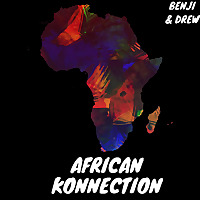The African Podcast Boom: How Storytelling is Redefining Media Across the Continent
.png)
Podcasts have become the new heartbeat of media in Africa, weaving together voices, cultures, and conversations that were once sidelined by traditional broadcasting. From the bustling streets of Nairobi to the creative hubs of Cape Town, African podcasters are breaking barriers, sharing untold stories, and redefining how the world listens to the continent.
Why Podcasts Are Thriving in Africa
The surge in podcasting is fueled by rising internet penetration and the availability of affordable smartphones. Streaming platforms like Spotify and Apple Podcasts have made it easier for African creators to reach global audiences. According to PwC’s Africa Entertainment & Media Outlook, Africa’s digital media market is projected to grow exponentially, with podcasts becoming a significant contributor.
Unlike mainstream radio, podcasts offer authenticity and diverse perspectives. They cover topics from politics to pop culture, mental health, and entrepreneurship. Kenyan show Legally Clueless, hosted by Adelle Onyango, explores personal narratives that resonate deeply with young listeners. Similarly, South Africa’s Podcast and Chill with MacG sparks debates that trend across social media. This diversity of content allows African youth to find stories they relate to, fueling a powerful sense of connection.
Cultural Power of Audio Storytelling
African podcasting thrives because storytelling is deeply embedded in the continent’s culture. For centuries, oral traditions have shaped communities, preserved history, and conveyed moral lessons. Podcasts now carry this tradition into the digital age, blending oral history with modern topics.
They also provide safe spaces for marginalized voices. Women-led podcasts like Her Africa Podcast explore feminism and gender equality, while shows like Queer Lagos highlight LGBTQ+ narratives often suppressed in mainstream media. According to Quartz Africa, such platforms have built strong communities, showing that audio content can drive cultural and social change as effectively as video.
Beyond social narratives, podcasts also capture dialects and languages at risk of fading. Shows that use indigenous African languages, such as Yoruba, Zulu, or Swahili preserve cultural identity while attracting audiences eager to reconnect with their roots. This linguistic preservation is critical, as UNESCO warns that many African languages face extinction by the end of the century if not actively promoted.
Podcasts as Tools for Education and Business
(1).jpeg)
Image source: FasterCapital
Beyond entertainment, podcasts have become powerful tools for education and entrepreneurship. Programs like Africa Tech Roundup discuss innovation and economic trends, equipping listeners with valuable insights. Businesses are also leveraging podcasts for branding, with startups using them to connect directly with audiences in authentic ways.
The economic potential is immense. Advertising revenue from podcasts in Africa is expected to rise significantly as brands recognize the medium’s influence. With millions of young Africans tuning in daily, creators have a unique opportunity to monetize while shaping public opinion. According to Africa No Filter, podcasts have become critical in reframing Africa’s narrative globally.
Additionally, universities and NGOs are now using podcasts for educational outreach. In Kenya and Tanzania, schools incorporate educational podcasts to enhance learning in remote areas. This flexible learning approach gives students access to lessons even when schools close due to crises like the pandemic.
Breaking Barriers: Infrastructure and Access
Despite growth, challenges remain. Stable internet access is still a hurdle in many rural areas, and data costs can be prohibitive. Many podcasters self-fund their shows without sponsorships or equipment support. Some rely on community studios or mobile devices to record episodes.
However, solutions are emerging. Platforms like Afripods are helping African podcasters host and distribute their content easily, offering monetization opportunities and local support. Partnerships with global platforms have also opened doors, enabling African shows to reach audiences in Europe and North America.
Case Studies of African Podcast Success
One standout example is The Spread from Kenya, which addresses topics of sexuality and relationships that are often taboo in mainstream media. The show has not only sparked dialogue but also attracted sponsorship deals, proving that niche content can thrive.
In Ghana, AccraWeDey blends humor, culture, and societal issues, attracting both local and diaspora audiences. Their success lies in authentic engagement, local language usage, and a strong connection with community trends.
Culture
Read Between the Lines of African Society
Your Gateway to Africa's Untold Cultural Narratives.
South African podcaster Simmi Areff, host of Lesser Known Somebodies, has gained recognition by interviewing both celebrities and everyday people, capturing unique stories often overlooked by mainstream media.
In Nigeria, The Afrobeat Podcast explores the evolution of African music and interviews major industry players, attracting global interest from fans and professionals. This showcases how podcasts can be both a cultural archive and a driver of industry growth.
These case studies show that African podcasts can carve out global niches while staying deeply rooted in local culture.
Intersection of Tech, Policy, and Opportunity
Technology continues to transform podcasting. African developers are building podcast apps tailored to local needs, integrating mobile money for donations and subscription models. Blockchain is being explored for securing intellectual property rights, ensuring creators benefit from their work.
Policy reforms could further enhance this growth. Governments can support podcasting by providing grants, reducing internet costs, and protecting content rights. In countries like Rwanda, where digital transformation is a priority, such policies have already encouraged a boom in tech-driven media ventures.
Global media organizations are also noticing the shift. Companies like BBC Africa have launched podcast series focusing on African stories, highlighting the continent’s growing influence in audio storytelling.
Podcasts and the African Diaspora

Image source: Google
Podcasts are also bridging the gap between Africa and its diaspora. Shows like Diaspora Conversations link Africans abroad with stories from home, fostering identity and cultural pride. This global reach strengthens the influence of African voices worldwide, creating a network of shared experiences.
Diaspora creators contribute fresh perspectives while amplifying local issues to international platforms. As these conversations grow, they foster collaborations that fuel both cultural and economic development. The exchange of ideas between diaspora podcasters and African audiences also sparks innovation in content creation and monetization strategies.
From Anxiety to Opportunity
African podcasters face hurdles, but their determination continues to turn obstacles into opportunities. Investment in better infrastructure, increased visibility for local creators, and collaborations with global media networks will accelerate this growth.
As younger generations embrace podcasts for both entertainment and learning, the market is expected to expand rapidly. The rise of community-driven podcasts, combined with improved access to technology, will ensure that African voices continue to shape global media conversations.
Africa’s Voice, Amplified
Image source: Google
African podcasts are more than just audio files, they are a movement. They amplify diverse voices, educate communities, and bridge cultural gaps across the globe. They challenge stereotypes, redefine narratives, and give young Africans platforms to express themselves freely.
As podcasting continues to grow, it will not only transform African media but also inspire the world. The stories being told today will shape the continent’s future tomorrow. When voices are heard, change is inevitable.
Recommended Articles
You may also like...
If Gender Is a Social Construct, Who Built It And Why Are We Still Living Inside It?

If gender is a social construct, who built it—and why does it still shape our lives? This deep dive explores power, colo...
Be Honest: Are You Actually Funny or Just Loud? Find Your Humour Type

Are you actually funny or just loud? Discover your humour type—from sarcastic to accidental comedian—and learn how your ...
Ndidi's Besiktas Revelation: Why He Chose Turkey Over Man Utd Dreams

Super Eagles midfielder Wilfred Ndidi explained his decision to join Besiktas, citing the club's appealing project, stro...
Tom Hardy Returns! Venom Roars Back to the Big Screen in New Movie!

Two years after its last cinematic outing, Venom is set to return in an animated feature film from Sony Pictures Animati...
Marvel Shakes Up Spider-Verse with Nicolas Cage's Groundbreaking New Series!

Nicolas Cage is set to star as Ben Reilly in the upcoming live-action 'Spider-Noir' series on Prime Video, moving beyond...
Bad Bunny's 'DtMF' Dominates Hot 100 with Chart-Topping Power!

A recent 'Ask Billboard' mailbag delves into Hot 100 chart specifics, featuring Bad Bunny's "DtMF" and Ella Langley's "C...
Shakira Stuns Mexico City with Massive Free Concert Announcement!

Shakira is set to conclude her historic Mexican tour trek with a free concert at Mexico City's iconic Zócalo on March 1,...
Glen Powell Reveals His Unexpected Favorite Christopher Nolan Film

A24's dark comedy "How to Make a Killing" is hitting theaters, starring Glen Powell, Topher Grace, and Jessica Henwick. ...

